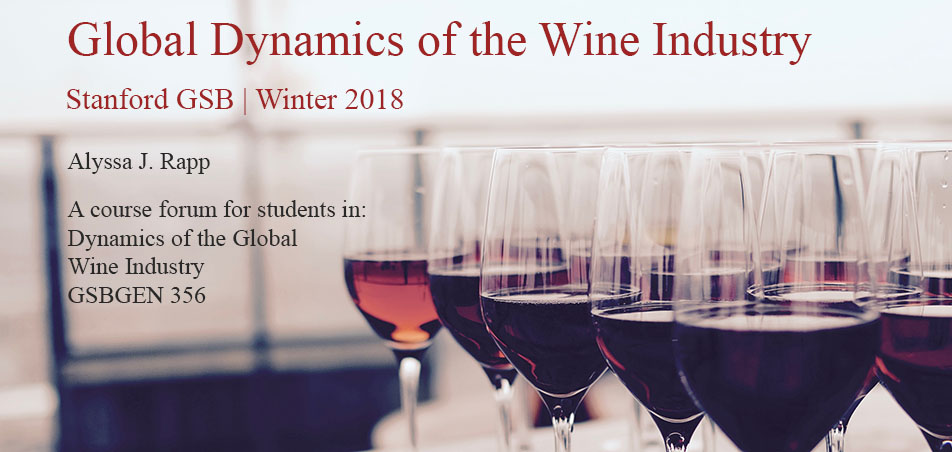Older wine vintages are often considered more prestigious, and I personally enjoy some of the secondary taste characteristics that emerge as a wine gets older. I wanted to do a little research about aging wine and how much a given vintage improves in value over time.
The first thing I learned is that only a small percentage of wines have "aging potential". Ninety percent of the world's wine production is meant to be drunk within one year of production, and 99% of the world's wine production is meant to be drunk within 5 years of production.
Wines that do age well are often high quality, and initially tannic. Bordeaux blends and cabernet sauvignon are examples of wine that are considered prime aging candidates.
How much does wine appreciate in value as it is aged? This article estimates that fine wine vintages have appreciated in value by about 12.5% per year over the last 50 years -- in contrast, the S&P 500 has returned around 11% over the last 30 years. Some very elite wines have appreciated even more rapidly:
I wonder if there is a business opportunity for someone to specialize in storing wines for sale when they are older and more valuable. Older vintages are uncommon in the typical liquor store, but some stores like K&L in San Francisco do carry older vintages, especially from Bordeaux. Of course, some of the return from aging is not attributable to the increase in drinking quality of older wine, but rather, that the supply of a given vintage declines over time as most of the bottles are drunk. If a large storage facility created a supply glut, I imagine that the 12.5% "return" would come down significantly.
You can see this somewhat with the Bordeaux wines at K&L. Because Bordeaux is so infrequently drunk at a young age, larger portions of it are stored and you can buy a bottle from the 1990s at K&L for $25 - $50 -- much cheaper than old vintages from other regions. While the business opportunity for storage may be limited, I am enjoying the availability of cheap older wine at K&L.


Rob - great tip on K&L. Will have to grab a Bordeaux next time I find myself there. I am shocked at the stat of 99% of wine is supposed to be consumed within 5 years. I am by no means an avid wine drinker, but I would have thought that number to be much lower. I also assume most wine consumers would not realize this as we have almost been conditioned to think the older the better with all red wine. I wanted to look into if wines that are supposed to be consumed within 5 years go down in price close to "expiration" or if there is still a market of under-educated consumers (such as myself) who will pay full price for a 2010 wine today not realizing its quality has diminished. I have not been able to find too much data on this, but plan to bring it up in class at some point.
ReplyDelete